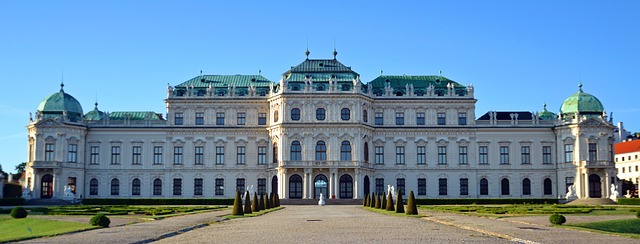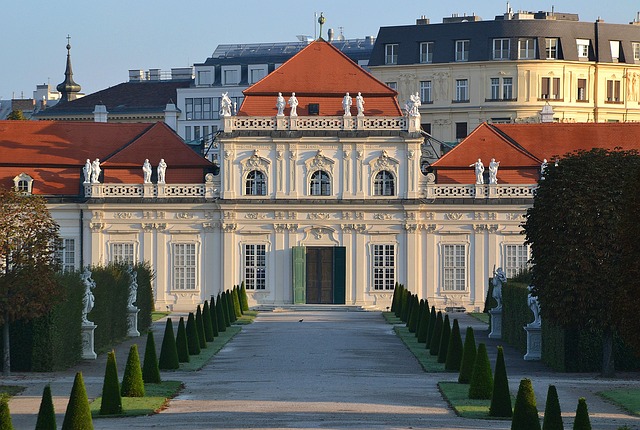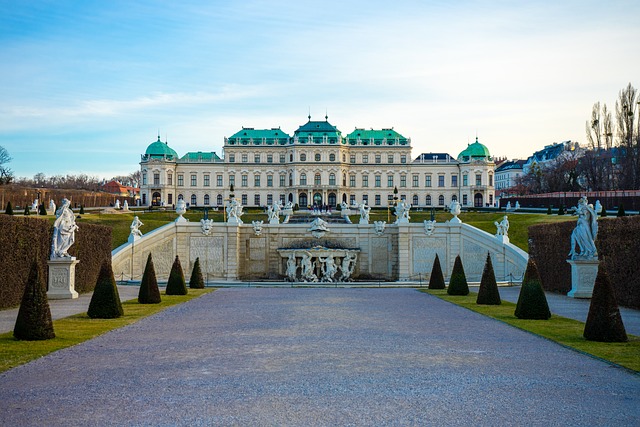During the 1848 Gold Rush, Eugene, Oregon—initially a small settlement—experienced rapid growth and social upheaval due to nearby gold discoveries. The University of Oregon, established years prior, played a pivotal role by attracting educated professionals and scholars from diverse backgrounds. Its academic offerings and community engagement initiatives transformed Eugene into a cultural hub, fostering intellectual growth and economic development despite the chaotic mining efforts. Today, the University of Oregon is recognized as a game-changer in shaping Eugene's success and positioning it as a prominent research center globally.
“Eugene, nestled in the heart of Oregon, witnessed its fate forever altered during the frenzied days of the Gold Rush era. This article delves into the transformative journey of a small settlement turned bustling metropolis. From the moment gold was discovered, Eugene experienced rapid growth, attracting diverse folks seeking fortune. We explore how the University of Oregon emerged as a haven of knowledge amidst the chaos, shaping the community’s resilience and future development. Unravel the legacy and impact that forever linked this region to its historic roots.”
- The Arrival of Gold: How Eugene's Fate was Forged
- University of Oregon: A Beacon of Knowledge Amidst Chaos
- Building a Community: Eugene's Growth and Challenges
- Legacy and Impact: The Lasting Effects on the Region's Development
The Arrival of Gold: How Eugene's Fate was Forged

When gold was discovered in California in 1848, a mass influx of prospectors and settlers swept across the West, reshaping landscapes and communities. Eugene, then a small settlement nestled along the Willamette River, wasn’t immune to this transformative era known as the Gold Rush. Though not located within the primary mining regions, Eugene’s fate was unknowingly forged by this period of intense economic and social upheaval. The University of Oregon, established just years prior, became a beacon for educated professionals seeking new opportunities in the West, drawing talent that would contribute to the town’s growth and development during these transformative times.
University of Oregon: A Beacon of Knowledge Amidst Chaos

During the chaotic Gold Rush era, the University of Oregon stood as a beacon of knowledge and stability in the heart of Eugene. As thousands of prospectors flocked to the region, seeking their fortunes, the university remained committed to fostering intellectual growth and community development. The University of Oregon’s presence not only provided a sanctuary for learning but also played a pivotal role in shaping the cultural landscape of the young city. Through its academic offerings and research initiatives, the university contributed to the diverse knowledge base that characterized Eugene during this tumultuous period.
The impact of the University of Oregon extended far beyond the confines of its campus. It attracted scholars and students from various walks of life, enriching the social fabric of the community. The institution’s commitment to education and innovation served as a counterpoint to the frenzied mining efforts, offering a different kind of treasure—the treasure of knowledge and intellectual exploration. This unique aspect of Eugene during the Gold Rush era set it apart, making it a thriving cultural hub amidst the chaos.
Building a Community: Eugene's Growth and Challenges

Eugene, nestled in the heart of Oregon, experienced a significant transformation during the Gold Rush era. The discovery of gold nearby sparked a rapid influx of settlers, leading to an explosion in population and diverse cultural influences. This period laid the foundation for what would become a thriving community centered around not just mining but also agriculture and education.
The University of Oregon played a pivotal role in shaping Eugene’s future. As the institution grew, it attracted scholars and students from various backgrounds, contributing to the town’s intellectual and social fabric. The university’s impact extended beyond academia; it fostered a sense of community among its members, who actively participated in local initiatives and contributed to the city’s development while navigating the challenges of rapid growth during this tumultuous era.
Legacy and Impact: The Lasting Effects on the Region's Development

Eugene, nestled in the heart of Oregon during the Gold Rush era, witnessed a transformation that left an indelible mark on its future development. The bustling town attracted diverse folks from all walks of life, each driven by the promise of prosperity. This period laid the foundation for what would become a thriving academic hub with the establishment of the University of Oregon in 1873, marking a significant turning point in the region’s trajectory.
The University of Oregon has played a pivotal role in shaping Eugene’s legacy and fostering economic growth, cultural enrichment, and scientific advancements. Its impact reverberates through the community, attracting students and scholars from around the globe. This academic institution has not only contributed to the town’s intellectual vibrancy but also positioned Eugene as a dynamic research center, leaving a lasting effect on the region’s development that continues to resonate in today’s modern era.














